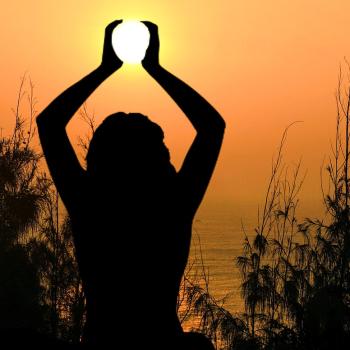And yet, with the insistence upon the immutability of gender, the expectations for Mormon women over almost two hundred years have caused significant confusion, especially over women's relationship to the Priesthood. For example, most Mormon women have probably heard, at any given time, and in no particular order, the following:
Women don't have the Priesthood. Women have always had the Priesthood. Women have the Priesthood in the temple. Women have the Priesthood through their husbands. Women will never have the Priesthood. Women don't have the Priesthood because they are spiritually inferior to men. Women don't have the Priesthood because they are spiritually superior to men. Women will have the Priesthood in the next life. Women don't have the Priesthood because they have motherhood. Not all women are mothers (literally). All women are mothers (symbolically). Mormons practice polygamy. Mormons don't practice polygamy. Traditional marriage is between one man and one woman. Men can be sealed to more than one woman. Members will be required to practice plural marriage in the next life. Members won't be required to practice plural marriage in the next life. Women might exercise the spiritual gift of healing by the laying on of hands. Women cannot heal because it is an exercise of priesthood. Women can heal together with their husbands. A woman's prayer of faith is just as effective as a priesthood blessing. (But then why the need for priesthood blessings?)
Given the dizzying array of mixed messages, diverse doctrinal interpretations, and evolving cultural mutations, perhaps even the most traditional Mormon might admit to feeling some confusion over women's roles.
In responding to the efforts of Ordain Women, the Church had consistently maintained that "the blessings of His priesthood are equally available to men and women, [even though] [o]nly men are ordained to serve in priesthood offices." Some members are not content with this rationale, instead countering that the actual exercising of Priesthood is, in and of itself, a blessing that only men may enjoy. Elder Dallin Oaks has provided the most careful and definitive answer to Ordain Women in his April 2014 Priesthood session talk, which has a little something for everyone. Traditionalists take comfort in his reminder that only men can be ordained to priesthood office and hold priesthood keys, a status which can only be altered through divine revelation and not through public agitation. Moderates who are hopeful for greater gender inclusion celebrate the acknowledgement of women's access to priesthood authority—and this is striking: not just blessings, but authority. Even Oaks recognized how unprecedented this is: "We are not accustomed to speaking of women having the authority of the priesthood in their Church callings, but what other authority can it be?"
Here is the remarkable breakthrough: If, in fact, women and men might fill callings by exercising priesthood authority, does that open the door for allowing women to serve in Sunday School presidencies, or as ward and stake clerks, zone and district leaders on missions, or even counselors in bishoprics and branch presidencies? For those who believe in female ordination, these steps won't go far enough, but they might be a starting place toward bringing Mormon women into greater inclusion in church leadership. And adding to the complication of this issue, in a Radio West interview the week leading up to the excommunication, when Doug Fabrizio pointedly asked Church Public Affairs spokeswoman, Ally Isom, "Where does it say in Mormon doctrine that women cannot have the priesthood?" she answered, "It doesn't."
Oaks's and other talks have shown how even the highest levels of church leadership have been pulled into this urgent conversation about Mormon women's relationship to priesthood, often in new and expansive ways. And what of Ordain Women? Rather than driving activities underground, as some feared, OW has seen a spike in submissions since Kate's disciplinary action, with two hundred new profiles submitted in less than a month, and only five removing their profile because of fear of repercussion. OW supporters feel galvanized, but unfortunately, with that galvanization, a cult of personality has formed around Kate, with some supporters focusing their indignation on her role as a martyr-heroine, at odds with the institutional church. This might lead to driving a greater wedge between members along the spectrum of institutional loyalty and public dissent. And yet, Kate Kelly—by design or not—has brought discussions about gender in the Church from the margins to the center. Moderate feminists are finding middle ground for offering their ideas about real and practical solutions for gender inclusion to a more accepting audience of traditional members. And yet, the excommunication has produced simultaneously hopeful and devastating results, as many Mormon feminists are choosing to resign their church membership in despair, fear, and hopelessness. So while the recent excommunication has forced the feminist conversation in unexpected ways, it is also tragically driving away many of Mormonism's best and brightest.
My hope is that, rather than avoiding these discussions, members of all inclinations will be challenged to confront seriously their assumptions about gender, about the history and theology of women in the church, and to have real, sincere, and respectful conversations about what is at stake. Perhaps as traditionalists express what they fear to lose if their frameworks are shaken, and feminists express what they hope to gain if their frameworks are realized, and church leadership listens with sincere heart and true intent, all involved might begin to come to an understanding of how the full potential of Mormon women might be tapped, for the growth of the church, their families, and themselves.



